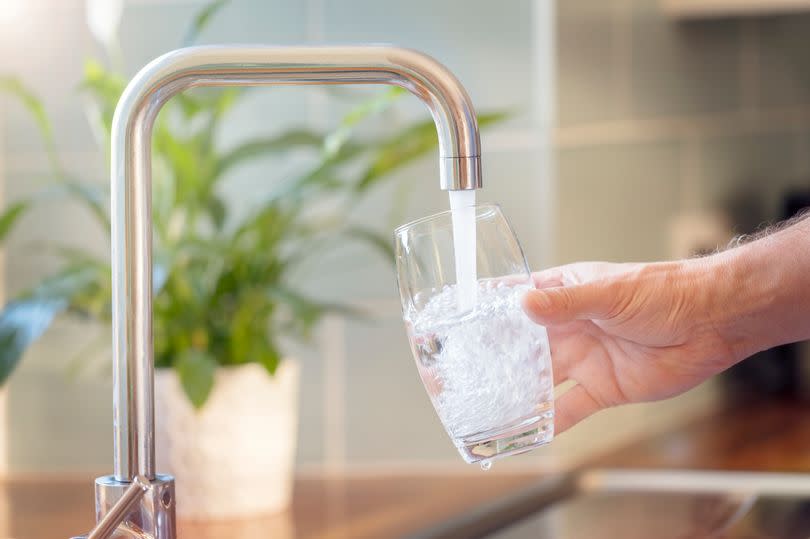Bring in water metering for Scots to prepare for climate change droughts, experts say

Water meters should be brought in for Scots to deal with climate-change droughts, experts have demanded.
Despite Scotland’s wet April the country remains “vulnerable” to water scarcity even if it feels like it’s “always raining”, says a study by Dundee University.
Their report called on the government to take swift action on a range of measures - including the consideration of domestic and non-domestic metering schemes for water use.
That would see Scots charged based on how much water they use in their home rather than the flat rate charge most receive.
The study also suggests kids could be taught “water literacy” in school to try to change the behaviour of Scots long-term so they’re less wasteful of water.
Scotland’s Net Zero Secretary Mairi McAllan welcomed the research, led by Dundee’s Dr Sarah Halliday and published by the Centre of Expertise for Water (CREW) based at the James Hutton Institute in Edinburgh.
Despite recent heavy rain, last June’s summer heatwave brought near-drought conditions across Scotland from Loch Ness to the Black Isle.
Dr Halliday said: “There is a widespread misconception that water resources are always abundant across Scotland because it’s ‘always raining’, and this has led to this precious resource being largely undervalued.
“However, we are experiencing more extremes in our weather, and while this can result in very intense rainfall events, it can also lead to much longer periods of lower rainfall.
“Added to this we are also seeing the demand for water increase, which combined with periods of reduced available water, is increasing our national vulnerability to water scarcity.”
A typical person in Scotland now uses around 180 litres per day, which is “significantly higher” than other parts of the UK and Europe, the report said.
Over the past few years, some local authorities, like Aberdeenshire, have had to deliver bottled water to homes where their supply has run dry.
Some whisky distilleries have been forced to stop production for periods over summer due to water supply issues.
In other cases, farmers have been prevented from taking water for irrigation purposes and some rivers have experienced flows so low that fish have died.
Dr Halliday added: “With these impacts set to become more severe and widespread as climate change continues and water demand varies, it is critical we take proactive action now.”
The report highlights the example of Denmark, where water consumption has dropped from 172 litres a day per person in 1987 to 100 litres in 2022.
That’s attributed to a series of water-saving public awareness campaigns, increased charges, water metering and water-saving taps, toilets and showers.
The report called on Scottish ministers to “look at a range of policy tools to assist in encouraging better use of this valued resource” including “systems of metering domestic and non-domestic water use”.
Welcoming the study, McAllan said: “This study rightly highlights the importance of behavioural change and we all have a part to play in protecting this precious resource from the effects of climate change by using water more responsibly.”
Don't miss the latest news from around Scotland and beyond - Sign up to our daily newsletter here.

 Yahoo News
Yahoo News 
